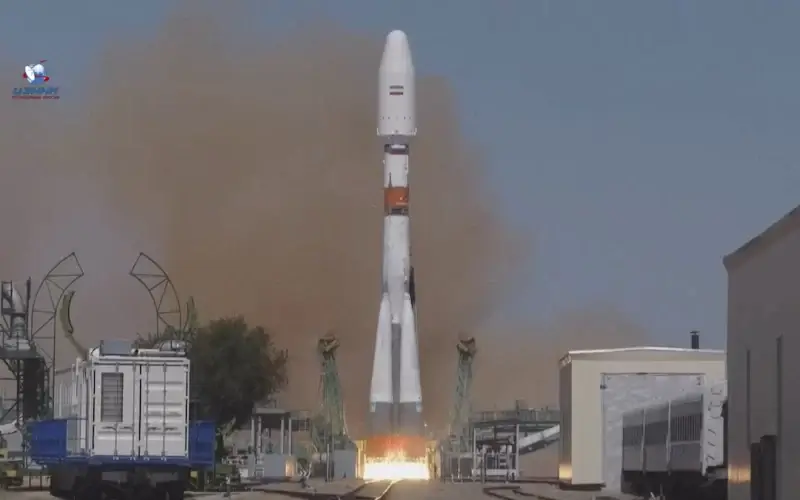by All Arab News Staff | August 9, 2022
A new Iranian satellite was safely launched into orbit by a Russian rocket today, providing Iran with the ability to surveil and monitor with high-resolution technology.
While Russia helped launch an Iranian satellite in 2005, Tuesday’s launch signals a new cooperation between Moscow and Tehran. The launch of the satellite comes two weeks after Russian President Vladimir Putin’s visit to Iran – and has the region on edge.
“This is the start of a strategic cooperation between Iran and Russia in the space industry,” Iran’s Information and Communications Technologies Minister Issa Zarepour said on Monday.
The launch is made amid speculation over how Iran – and Russia – want to use the data collected. The Khayyam satellite, named after a 12th-century Persian mathematician, reportedly will “monitor the country’s borders,” enhance agricultural productivity, and monitor water resources and natural disasters, the Iranian agency wrote.
Unnamed Western security officials familiar with the upcoming satellite launch stated the Khayyam satellite “will greatly enhance Tehran’s ability to spy on military targets across the Middle East,” according to the Washington Post.
The security officials said the satellite is equipped with a high-resolution camera that will give Tehran “unprecedented capabilities, including near-continuous monitoring of sensitive facilities in Israel and the Persian Gulf.”
The satellite has a resolution of 1.2 meters which is much less than the quality a U.S. spy satellite or high-end commercial satellite would deliver, however, it is reportedly a substantial improvement over Iran’s current capabilities.
Iran would also be able to “task” the new satellite to spy on locations of its choosing, as often as it wishes, according to the officials.
“It’s not the best in the world, but it’s high resolution and very good for military aims,” a Middle Eastern official familiar with the hardware of the satellite told The Washington Post in June 2021. “This capability will allow Iran to maintain an accurate target bank, and to update that target bank within a few hours” every day.
The security official also told The Post that “Iran could share the imagery with pro-Iranian militia groups across the region, from the Houthi rebels battling Saudi-backed government forces in Yemen to Hezbollah fighters in southern Lebanon and Shiite militias in Iraq and Syria.”
“Pro-Iranian militias have been linked to repeated rocket attacks on Iraqi military bases that are home to U.S. troops and military trainers,” he said.
“This is obviously a clear and present danger to the United States and our allies in the Middle East and abroad,” said Richard Goldberg, a former Iran analyst in the Trump administration’s National Security Council. Goldberg is now a senior advisor for the Foundation for Defense of Democracies, a Washington think tank.
“As Iran perfects its missile arsenal – from short-, medium- to longer-range missiles, alongside its growing UAV capability throughout the Middle East – being able to sync those capabilities with satellite capabilities and surveillance will only increase the lethality of the Iranian threat,” Goldberg said.
Russia intends, firstly, however, “to use the spacecraft to assist its own war effort in Ukraine,” the officials told The Post.
“But Iran may not be able to take control of the satellite right away,” The Post wrote. “Russia, which has struggled to achieve its military objectives during its five-month-old assault on Ukraine, told Tehran that it plans to use the satellite for several months, or longer, to enhance its surveillance of military targets in that conflict.”
Russia and Iran have been intensifying their cooperation since Russia’s invasion of Ukraine in February, as both countries increasingly find themselves isolated on the international scene.










